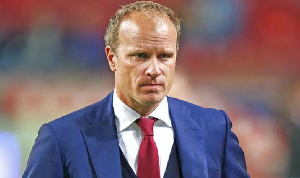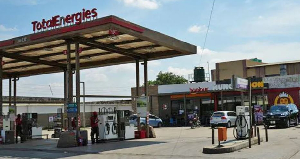Business News of Tuesday, 20 August 2013
Source: B&FT
TUC dismisses proposed utility tariff hikes
The Trade Union Congress (TUC) says it is opposed to any increment in utility tariffs to the level proposed by service providers, given that Ghanaian consumers are already over-stretched.
The Electricity Company of Ghana (ECG) is effectively asking for a 166 percent increase in its current tariff, which would help the company bridge its US$170million annual funding gap. The Volta River Authority (VRA) is seeking an increase of 137.5 percent; Ghana Grid Company Limited, 39.36 percent; and the Ghana Water Company, 99.39 percent.
In a press statement issued in Accra, the TUC said it appreciates the challenges faced by the utility providers, and the difficulties which have afflicted the provision of electricity and water over the years.
The Union equally acknowledged the personal discomfort that consumers have had to endure at the hands of utility providers.
However, it said the challenges that face utility provision in the country are real, endemic and structural. “There are management and technical issues that are often packaged for consumers to pay in the form of tariff,” the statement said.
Though the Union agreed that a tariff adjustment could potentially be part of the solution, it said experience over the years has shown that merely raising tariffs unaccompanied by other measures that address systematic challenges has failed to improve the situation.
“The utility companies get the tariff adjustments, but they are unable to improve service delivery because the structural challenges remain as binding constraints.”
The TUC said failure to allow the automatic adjustment mechanism to work, as agreed among stakeholders in 2010, is a “political failure” for which consumers should not be liable.
“The political establishment that scuttled the mechanism should deal with it,” it stated. Overall, the Union said it favours an approach that takes a holistic view of the utility sector. Going forward and given the dire economic situation many Ghanaians face, the ECG should rather aim at cutting losses -- or at best breaking-even, it said.
Citing a World Bank report, the TUC noted that in the last quarter of 2012 the system-loss at the ECG was about 27 percent. According to the Bank, a 10 percent reduction in such losses could earn the ECG some US$85million, more than enough to wipe out the losses incurred in 2011 and 2012.
“There is also the issue of uncollected revenues by the ECG. Again, according to the World Bank, private consumers owe the ECG about GH¢205.4million,” the TUC said.
Government agencies and institutions, including the universities, owe the ECG a total of GH¢428.2million. Collecting these revenues will make a far greater impact on utility service delivery than perhaps stand- alone increases in tariffs, the TUC reiterated.
On the issue of water, the TUC said “the least said about it the better”: since the Ghana Water Company loses nearly half of the water it produces, it makes sense that the Company is in dire financial difficulties, the statement noted. And in the view of the Union, the Company requires something other than a tariff increase to fix the many challenges it faces.
The TUC indicated that given the level of incomes prevailing in the country, it would be highly unrealistic to think that realistic utility pricing will occur in Ghana anytime soon. This is a fact and reality we must face, it emphasised.
It reminded government that subsidies will therefore continue to be important in allowing the majority of Ghanaians to have access to electricity and water services, and urged the Public Utilities Regulatory Commission to bear this in mind.
Any further attempt to over-burden Ghanaians could have undesirable social and political implications, the statement ended.












